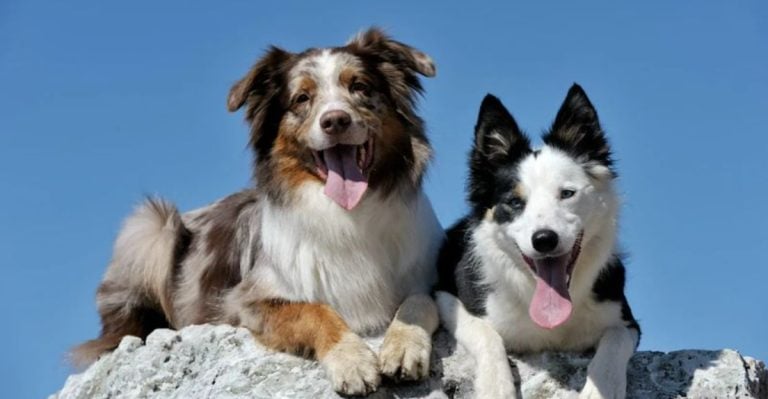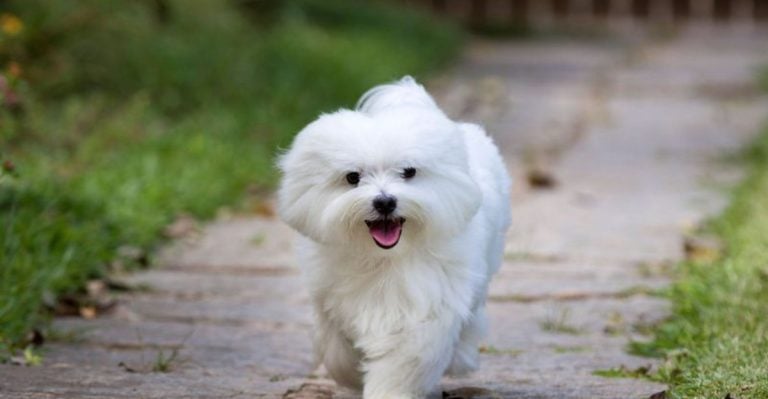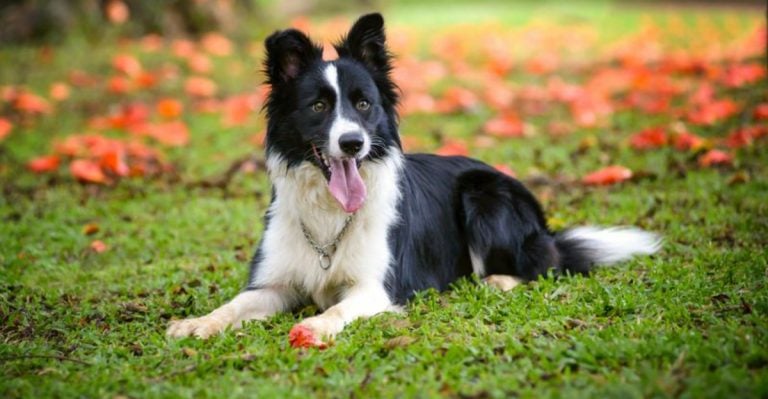15 Most Dangerous Dog Breeds That People Just Can’t Stop Loving
Dogs have been trusted companions to humans for thousands of years, offering loyalty, protection, and unconditional love. But not all breeds are created equal—some carry a reputation for being more dangerous due to their strength, instincts, or history of aggression.
Despite these concerns, many people are still drawn to these powerful canines. Their commanding presence, intelligence, and fierce devotion make them irresistible to experienced dog owners who understand what it takes to raise them right. These breeds aren’t inherently bad or aggressive, but they do demand proper training, early socialization, and confident leadership.
From muscular guard dogs to strong-willed working breeds, the dogs on this list require far more than casual care. They thrive under structure, purpose, and respect—and when handled poorly, their natural instincts can become a liability.
Still, their loyal hearts and bold personalities continue to capture the attention of dog lovers worldwide.
Here are 15 dangerous dog breeds people are still obsessed with, and what makes them both risky—and deeply rewarding—companions.
1. Pit Bull Terrier: Loyal Protectors with Misunderstood Reputations
Muscular and tenacious, Pit Bulls often face unfair stereotyping despite their naturally affectionate temperaments. These dogs form incredibly strong bonds with their families and typically adore children when properly socialized.
Their powerful jaws and determination make proper training essential from puppyhood. Responsible ownership includes early socialization, consistent training, and understanding their high energy requirements.
Fun fact: During World War I, Pit Bulls were featured on American propaganda posters as symbols of courage and determination. Today, many work as therapy dogs, proving their gentle nature when raised with love and guidance.
2. Rottweiler: Guardian Angels in Powerful Packages
Behind those watchful eyes lies a calm, confident protector whose loyalty knows no bounds. Rottweilers naturally guard their loved ones with an instinctive intelligence that makes them exceptional family guardians.
Their imposing strength requires owners who understand proper handling techniques and can provide consistent leadership. Early training prevents their protective instincts from becoming problematic behavior.
Surprisingly gentle with family members, these powerful dogs need socialization to distinguish between genuine threats and normal situations. Despite their intimidating appearance, well-trained Rottweilers typically show remarkable self-control and judgment about when protective behavior is actually needed.
3. German Shepherd: The Versatile Workaholic with Unwavering Focus
Legendary for their work alongside police and military personnel, German Shepherds possess a unique combination of intelligence, trainability, and physical prowess. Their protective instincts make them naturally wary of strangers, a trait that requires careful socialization from an early age.
Mental stimulation proves just as important as physical exercise for these working dogs. Without proper outlets for their energy and intelligence, they may develop problematic behaviors stemming from boredom or frustration.
Originally bred for herding, their strong prey drive and quick reflexes demand thoughtful training. The breed’s intense loyalty to their handlers makes them exceptional service dogs, though their power requires responsible ownership.
4. American Bulldog: Powerhouse Athletes with Tender Hearts
Bulging muscles and a determined expression hide the American Bulldog’s surprisingly sensitive nature. These athletic powerhouses form deep emotional connections with their families while maintaining a natural wariness toward strangers.
Originally farm dogs, they retain impressive strength that requires confident handling and clear boundaries. Their stubborn streak means training must be consistent and positive, never harsh or punitive.
Surprisingly nimble despite their bulk, American Bulldogs excel in active homes where they receive plenty of exercise and engagement. Their protective instincts make them natural guardians, though their enthusiasm sometimes leads them to underestimate their own strength during play.
5. Bullmastiff: Gentle Giants with Surprising Speed
Originally bred to track and hold poachers on English estates, Bullmastiffs combine impressive size with unexpected agility. Their naturally protective instincts activate quickly when they perceive threats to their family.
Despite their imposing stature, well-bred Bullmastiffs typically show remarkable gentleness with children and family members. Their quiet, watchful nature makes them excellent home guardians who rarely bark without good reason.
Early training proves essential as these powerful dogs mature quickly. Their independent thinking means they need owners who earn their respect through consistent leadership rather than dominance. When properly socialized, their natural reserve with strangers rarely escalates to aggression.
6. Husky: Wild-Hearted Escape Artists with Mischievous Minds
Huskies carry the spirit of their wild ancestors in their striking wolf-like appearance and independent personalities. Their remarkable endurance and intelligence serve them well as escape artists, often leading to dangerous situations when they roam unsupervised.
Strong prey drives make them potentially dangerous around small animals unless extensively trained. Their pack mentality requires owners who establish clear leadership while respecting their free-spirited nature.
Bred for running vast distances in harsh conditions, these dogs need significant physical outlets. Without proper exercise, their frustration often manifests as destructive behavior. Their distinctive vocalizations—ranging from howls to “talking”—reflect their expressive personalities and communication skills.
7. Alaskan Malamute: Arctic Powerhouses with Ancient Wisdom
Majestic and powerful, Malamutes were developed by the Inuit people to haul heavy loads across frozen landscapes. Their incredible strength and endurance make them potentially dangerous when untrained, as they can easily overpower unprepared owners.
These pack-oriented dogs challenge leadership constantly, requiring owners with calm confidence and consistency. Their thick double coats and high energy levels make them poorly suited for warm climates or sedentary lifestyles.
Despite their imposing size, well-socialized Malamutes typically show remarkable patience. Their hunting instincts remain strong, however, making them risky companions for small pets. Historical working partners with humans, they thrive with jobs that engage their minds and bodies.
8. Doberman Pinscher: Elegant Guardians with Lightning Reflexes
Sleek and athletic, Dobermans combine keen intelligence with impressive physical abilities. Originally bred as personal protection dogs, their alertness and quick responses make them exceptional guardians when properly trained.
Their intense loyalty creates strong bonds with family members while maintaining natural suspicion toward strangers. Modern breeding has softened their temperaments considerably from their early development as tax collector guards.
Highly trainable and eager to please, Dobermans excel in various canine sports and working roles. Their sensitivity requires positive training methods rather than harsh corrections. Despite their formidable reputation, well-bred Dobermans typically show remarkable discernment about appropriate protective responses rather than indiscriminate aggression.
9. Chow Chow: Lion-Maned Independents with Ancient Heritage
Recognizable by their distinctive blue-black tongues and lion-like manes, Chow Chows carry themselves with dignified independence. Their naturally aloof temperament makes them wary of strangers and sometimes unpredictable around unfamiliar people.
Unlike many breeds, Chows rarely seek approval and often behave more like cats than typical dogs. Their strong territorial instincts require careful management, especially in homes with frequent visitors or children’s friends.
Dating back thousands of years in China, these dogs served as hunters, haulers, and guardians. Their stubborn nature and natural suspicion demand early socialization and consistent training. Despite their challenges, devoted owners appreciate their unique personalities and striking appearance.
10. Presa Canario: Spanish Guardians with Unwavering Determination
Massive and muscular, the Presa Canario commands respect with its powerful presence and serious demeanor. Historically used for livestock guarding and dog fighting in the Canary Islands, these dogs retain strong protective instincts that require expert handling.
Their territorial nature makes them naturally suspicious of strangers entering their domain. Extensive socialization from puppyhood helps prevent their protective instincts from becoming problematic aggression.
Not recommended for first-time dog owners, Presas need confident, experienced handlers who understand canine behavior. Their loyalty to family typically contrasts sharply with their wariness toward outsiders. When properly trained, their protective nature makes them exceptional guardians without unnecessary aggression.
11. Cane Corso: Roman Warriors with Renaissance Souls
Descended from Roman war dogs, the Cane Corso combines imposing strength with surprising sensitivity. Their intimidating appearance belies their typically calm, steady temperament when properly raised and trained.
Intensely loyal to their families, these dogs naturally assess potential threats with remarkable discernment. Their protective instincts activate quickly when they perceive danger to their loved ones.
Early training proves essential as these powerful dogs mature quickly into their guardian roles. Their intelligence demands mental stimulation alongside physical exercise. Italian farmers preserved the breed through centuries, valuing their versatility as property guardians, hunting companions, and farm workers.
12. Tosa Inu: Japanese Fighting Legends with Quiet Dignity
Revered in Japan as living national treasures, Tosa Inus were developed specifically for the fighting ring. Their massive size and power make them potentially dangerous in inexperienced hands, requiring owners with exceptional understanding of canine behavior.
Despite their fighting heritage, well-bred Tosas typically show remarkable calmness and self-control. Their quiet, dignified demeanor contrasts with their formidable physical capabilities.
Banned in several countries due to their fighting background, these rare dogs need specialized training from puppyhood. Their natural stoicism means they may not show warning signs before responding to perceived threats. When properly raised, however, their loyalty and steadiness make them devoted companions.
13. Boerboel: African Farmstead Defenders with Surprising Agility
Developed in South Africa to protect homesteads from predators including lions, Boerboels combine massive strength with unexpected athleticism. Their confidence and territorial nature make them natural guardians who require no special training to protect their families.
Despite their intimidating size, well-bred Boerboels typically show remarkable gentleness with family children. Their discerning judgment about threats makes them effective guardians without unnecessary aggression.
Early socialization proves essential to help these powerful dogs distinguish between normal situations and genuine threats. Their independence and territorial instincts require owners who establish clear leadership. When properly raised, their calm confidence makes them steady companions in challenging environments.
14. Dogo Argentino: White Hunters with Unmatched Courage
Developed specifically for big game hunting in Argentina, Dogo Argentinos possess remarkable strength, endurance, and determination. Their high prey drive and athletic abilities make them potentially dangerous without proper training and containment.
Pure white coats belie their rugged nature and hunting prowess. Originally bred to hunt wild boar and puma, these dogs maintain strong instincts that require careful management around small animals.
Despite their hunting background, well-raised Dogos typically show gentle affection toward family members. Their pack-oriented nature means they generally get along well with other dogs when properly socialized. Active families who understand their exercise needs find them loyal and devoted companions.
15. Wolfdog: Wild Heritage with Domestic Challenges
Combining wolf and dog genetics creates animals with unpredictable temperaments and special needs. Their wild instincts often conflict with domestic expectations, making them challenging even for experienced dog owners.
Wolfdogs typically show intense shyness or fear around strangers, sometimes triggering unpredictable defensive responses. Their natural wariness makes socialization particularly challenging yet essential.
High intelligence paired with independent thinking creates escape artists who need specialized containment systems. Their strong prey drive makes them potentially dangerous around small animals and sometimes children. Despite these challenges, responsible owners who understand their unique needs report deep bonds with these complex animals.





















